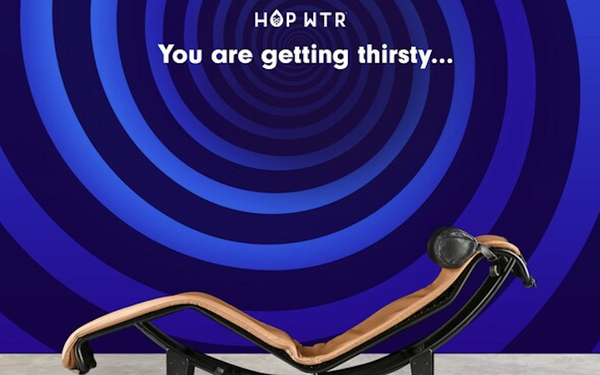
Every January, people mark the new year
with commitments -- however short-lived -- to make positive lifestyle changes. In recent years, there’s been a growing trend of people committing to a Dry January, starting the new year with a
month free of alcohol, typically following the usual excesses of New Year’s Eve. Many find that easier said than done, however, and sparkling hop water brand Hop Wtr wants to lend a helping
hand, enlisting a surprising partner in the process of crafting its second Dry January campaign.
Ahead of Dry January, HopWtr launched a “Hopnotist” campaign in
partnership with Amy Koford, a professional hypnotist and founder and CEO of Results Hypnotherapy. A national sweepstakes will give consumers the chance to win a one-on-one session with Koford to help
them keep their resolutions. The “Hopnotist” campaign will also include an organic social media component.
advertisement
advertisement
“Dry January sounds like a good idea, but it can be hard to pull
off," Hop Wtr Co-Founder and CEO Jordan Bass said in a statement, adding that, in addition to hypnosis helping in their Dry January commitments, those who undergo the treatment “may also leave
the session wanting to drink lots of Hop Wtr.”
“We know people love our brand because they heart it on Instagram, but we want them to be obsessed,” he added.
“Putting consumers into a hypnotic trance seemed like a natural extension of our marketing.”
Those interested in the promotion can sign up through Dec. 26 for a chance to win
a virtual session with Koford during the first week of January. Winners will also receive a one-month supply of Hop Wtr to help them stave off any cravings for beer during the 31-day month.
While Dry January has become an established part of the cultural consciousness in recent years, with nearly a quarter of (24%) adults in the U.S. familiar with the event, according to Morning
Consult, participation actually declined in 2023, dropping from 19% in 2022 to 15% in 2023, and from 27% to 19% among millennials. A growing number of consumers choosing to abstain from alcohol
altogether may be one contributing factor.
For more on Dry January and non-alcoholic beverages, check out today's Top of the News story.